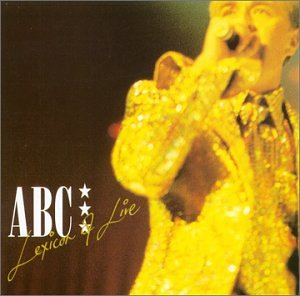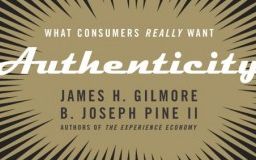Last week the testimony ended in the Harry Potter Lexicon case regarding whether J.K. Rowling can prevent the print publication of the Lexicon, a non-licensed encyclopedia of the Harry Potter universe. While barely mentioned during the trial, this case is not just about one unwanted book, but concerns the entire Harry Potter fan community.
From most news-reporting and critics, the case was a simple binary dichotomy of:
- J.K. Rowling — as either the super-rich author trying to suppress a labor of love by a fan ORas the author wanting to protect her precious creations from an unauthorized use by another
- Vander Ark — as either a fan wanting to show his appreciation for the work he loves OR as someone trying to make money based on another author’s creation
But the Lexicon was created as a online encyclopedia with a large number of fans helping to make the entries accurate. When Vander Ark signed his book deal there was no consideration of the countless fans that contributed and made the website a success. So this is a fight between the author (who has made $$$$$$$$$$$$$$$$$$$$$$$$$$$$$) and the compiler/host of a fan-created work (who is interested in making $). And the fans who have contributed to the Lexicon get neither $ nor recognition of their contribution.
One of the most important issues revolves around ownership. According to Rowling’s complaint:
Steve Vander Ark has said the Lexicon was “created, edited, written and maintained primarily by one person, me,” and the book has listed only one author; however other evidence … claims that the book was the result of 20 academic scholars and reference experts’ work.
And that doesn’t even include the additional fan input!
The longest mention of fans during the trial was during by the potential publisher on the first day of the trial:
Q… if you win this case, out of the money that you receive, you don’t plan to give any of it to fans who submitted their work, their time, to submitting information from Ms. Rowling’s book to Mr. Vander Ark’s website, is that right?
A. That’s not true.
Q. You’re going to give back money to the fans, is that what you’re saying?
A. If the book is successful, there’s a lot of possibilities.
The second day of the trial, the judge said that the issue of fan payment/contribution was irrelevant, to what was deemed the larger issue — that of fair use:
The question here, as I understand it, is whether or not the book, proposed book, the Lexicon, can be published as a matter of fair use, and that’s the issue, is whether it’s a fair use of Ms. Rowling’s novels, for someone to publish this Lexicon. Whether or not the fans contributed in part is a side issue.
Thinking about this case as simply a binary dichotomy fits nicely into viewing this case as a struggle between the derivative works right and fair use. But the fan community isn’t directly considered in traditional copyright considerations — as shown by the judge wanting to move forward from this issue. In the Info/Law blog, Derek Baumbaeur, discusses how an additional fair use factor should be considered regarding the copyright’s owner’s behavior:
Rowling has been supportive – very much so – of the Lexicon as long as it remained on-line and relatively non-commercial. To the degree that free speech concerns arise in this case …, Rowling’s conduct mitigates those worries. … She’s allowing this information to be presented to her fans and the public in general, while trying to minimize financial harm to her works. Copyright is often presented as a balance between incentives to produce and access to that production; here, Rowling’s approach seems to find that balance.
I wish that the judge had been interested in potentially considering the fan input as a possible sixth (?) factor.
It is difficult to see how this case will be decided — after all, if Vander Ark wins, there will likely be far-reaching consequences to fan-created works and fair use rights. But J.K. Rowling has always been supportive of the fan community surrounding her works, interceding on behalf of fanworks (she is however against fanworks that use underage characters in illegal physical situations).
This case has already led to a rift in the Harry Potter fan community, with the Leaky Cauldron (the most popular Harry Potter news-site/message-board) cutting all ties to the Lexicon. Unfortunately for J.K. Rowling and fortunately for fair use, I think that Vander Ark will “win” the case. However, I predict a Pyrrhic victory, with Vander Ark further being shunned from the fandom. At least when we the public buy Harry Potter books, movie tickets, and merch, we know where our $ is going; yet hopefully Vander Ark’s use of fan labor most likely without compensation or credit will not be repeated by others.
Instead of linking throughout this post these are the additional sources I suggest:
For the best legal reporting day by day of the case, I suggest Dan Slater’s posts on the Wall Street Journal Law blog and in an article here.
The documents filed in the case can be read on Justia. The trial transcripts are on Stanford Center for Internet and Society’s website here, here, and here.
Fandom Wank has been a great source of complilations of news-reporting and a compilation of fan opinion that varies greatly from that of legal commenters. Warning: Fandom Wank threads can sometimes be not safe for work (NSFW), but all of the relevant posts are here.
For more about the Rowling/Warner Brothers/fanworks controversy, see Chapter 5, “Why Heather can Write” in Henry Jenkins’ Convergence Culture (or more generally here).





[…] Sara Grimes writes about the Harry Potter lawsuit differently than I’ve seen before (or the economic production /fan labor issues that I’ve written about) by focusing on how traditional intellectual property analysis […]
[…] I discussed previously, the exclusion of mentions of fan labor and fan contribution is unfortunate. However, there are […]
[…] Harry Potter (we have a longer version of this section here) […]